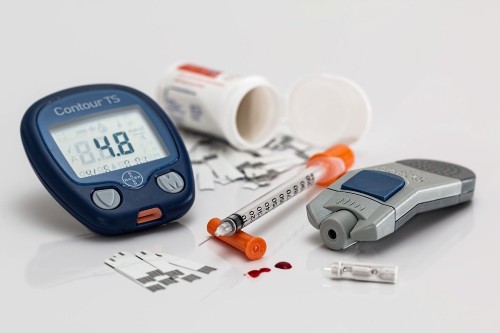
Cannabis And Diabetes – Can Marijuana Help?
If you suffer from diabetes, and live in Florida, you now have access to a new way of healing – cannabis. Now that medical marijuana use is approved in the State, many patients are turning to its natural methods of relief. While diabetes is not on the list of ‘qualifying’ conditions, with the right MMJ Doctor in the State you can easily become approved for legal use.
Medical marijuana offers a variety of benefits that work with your body’s internal systems, that can help the symptoms and primary causes of diabetes. So, if you’re looking for alternative methods of finding relief – look no further than the natural benefits of cannabis. Here, we’ll detail just how cannabis for diabetes can help, and the best way to find a pot doctor in Florida to become approved for the use of medical marijuana.
How Does Cannabis Work?
The cannabis plant naturally produces a plethora of beneficial compounds, that interact with our body’s internal systems. Most notably, being major cannabinoids like THC or CBD. With expanded research, the medical community is also finding that minor cannabinoids like THCa, CBDa, CBN, CBC, CBG and others have beneficial effects to provide, too. Along with terpenes, or the aromatic centers of the plant, that produce marijuana’s unique and identifiable scents.
Together, these compounds and cannabinoids enter our body through varying consumption methods – like inhaling cannabis flower, or oil, consuming tinctures, or edibles, even applying cannabis transdermal patches, or other new delivery methods. Regardless of how you consume, the cannabinoids begin to interact with the body’s endocannabinoid system. A lesser-known body system, that was only just recently discovered with heightened research on marijuana.
The endocannabinoid system (ECS) is highly influential in your body maintaining and balancing ‘homeostasis’. Or, the overall feeling of well-being and optimal health. The ECS comprises a network of messengers, that communicate throughout the body to achieve ‘homeostasis’. For example, if you bump into an object and feel pain – your body’s ECS goes into action to address and relieve that pain.
Regardless of using cannabis or not, your body’s endocannabinoid system still exists and thrives. However, with enhanced research experts are finding that outside cannabinoids (from cannabis) can strengthen and alter the way the system reacts to everyday aches and pains. Or, even serious conditions that cannabis is now being approved to treat. Overall, the ECS is highly influential in regulating the following body processes –
- Appetite and digestion
- Metabolism
- Chronic pain
- Inflammation & immune system responses
- Mood & stress
- Learning and memory
- Motor control
- Sleep
- Bone growth
- Muscle formation
- Cardiovascular system function
- Liver function
- Reproductive system function
- Skin and nerve function
Cannabis for Diabetes
Considering many of these processes are affected by the diabetes condition, and its symptoms – you may already see how cannabis can help the debilitating condition. For those who aren’t familiar with diabetes, the group of diseases (type 1, type 2, etc) is caused by abnormal levels of sugar in the blood (high blood glucose). Without management of controlling these levels, serious risks or conditions can occur like strokes, or heart disease. Plus, many patients can suffer from diabetes side effects like –
- Nerve damage (neuropathy) – Tingling, numbness, burning or pain can occur from excess levels of sugar. This type of nerve damage can cause issues with the digestive system, causing vomiting, nausea, diarrhea or constipation.
- Kidney damage – Diabetes can also offset kidney failure, or kidney diseases that often require transplants or dialysis.
- Eye damage – Cataracts and glaucoma are common amongst diabetes patients, since the condition can affect or damage blood vessels in the retina.
- Skin conditions & slow healing – Diabetes increases patients susceptibility to skin issues, like bacterial or fungal infections. It also slows down normal healing, where untreated cuts, or blisters can become serious or infected more quickly. This often results in severe or irreversible damage, like amputations.
So, how can cannabis help? Recent research has increased into the connection between marijuana and diabetes. While the medical community is still deciphering exact interactions, benefits and side effects, early findings are showing that pot can be beneficial for the wide-reaching condition. Here’s what trials, have proven so far –
- The American Alliance for Medical Cannabis (AAMC) recently published a review and report of studies that shows cannabis has the following benefits for patients with diabetes –
- Stabilizing blood sugars via the EC system
- Cannabis’ anti-inflammatory effects can reduce arterial inflammation found in diabetes
- Pot’s natural neuroprotective effects help combat nerve inflammation, and reduce neuropathic pain via endocannabinoid receptors in the brain and body.
- Medical marijuana’s anti-seizure and anti-spasmodic effects (like those used to treat other seizure disorders) help relieve muscle cramps, and GI disorder pain.
- THC and other cannabinoids are vasodilators, AKA, promote the opening of blood vessels for improved circulation.
- Cannabis is tied to lowering blood pressure overtime, which is beneficial for diabetes specifically.
- Marijuana’s general effects for the cardiovascular system, metabolism, and digestion are also proving helpful for diabetes. In 2013, The American Journal of Medicine published a study concluding the following cannabis benefits can help those who suffer from type 1 or type 2 diabetes –
- Cannabis and its cannabinoids are successful at controlling blood sugars.
- MMJ consumers have lower body mass indexes (BMI) overall, smaller waistlines and are less likely to reach the level of obesity.
- Pot consumers display higher levels of ‘good cholesterol’ beneficial for combatting diabetes.
- In 2014, a study published in the Natural Medicine Journal reviewed thousands of subjects for their diabetic factors. It was found that past, and current pot users had lower levels and measurements of –
- Fasting insulin
- Blood glucose
- Insulin resistance
- BMI, and waist circumference
With growing evidence, and a growing number of MMJ users overall – the medical community is slowly but surely uncovering the health benefits that medical marijuana can provide. Especially for the diabetes condition, and the side effects and symptoms it can offset. But, how can a Florida resident become approved to use cannabis legally? We’ll cover finding an MMJ Doctor in Florida, next.
Finding an MMJ Doctor in Florida
Be wary of just any old clinic, or website that is advertising to certify medical marijuana approvals. While pot is approved for a number of medical conditions, and symptoms, you’ll want to take the process seriously and involve medical professionals that you trust along the way. Depending on your lifestyle, or exact medical condition, a licensed practitioner and MMJ doctor will be able to recommend the best dosage or delivery method for treatment, based on your individual needs.
The Medical Cannabis Clinic of Florida, or MCCFL is designed with these types of patients in mind. The clinic is equipped with the professional service of highly acclaimed physicians, who support the use of medical marijuana for a wide range of qualifying conditions. Using a one-stop source like MCCFL will make the process of becoming approved, and knowing how to safely and effectively use cannabis, that much easier.
No matter your location, MCCFL has an office that can easily and conveniently serve you – Helping you prepare the documentation required for state approval, and providing top-notch medical advice for your exact condition and history of health. Currently, MCCFL has offices open for appointments in Delray Beach, Kissimmee, and Orlando serving the greater metropolitan area and cities like Saint Cloud, Celebration, Lake Worth and Boca Raton. Start your MMJ journey off on the right foot, and contact MCCFL to begin the process, today.

